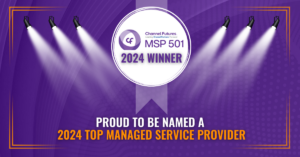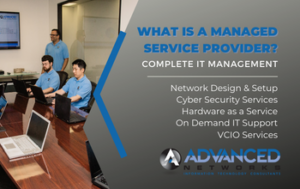How many IT consultants in Los Angeles do you think to endorse multi-factor authentication (MFA)? As much as it’s a good strategy to protect your online accounts, only the most up-to-date and proactive IT firms take it seriously. Many businesses write off the extra security layer as a waste of time, overlooking the fact that it’s a simple way to add stronger protection. Here are reasons why you should consider this security solution:
Importance of Multi-Layered Security
If your business has never experienced a cyber attack despite only using antivirus software, consider yourself lucky. You should also consider adding more layers of security since some hackers are sophisticated enough to get around antivirus software. For one thing, antivirus software doesn’t block hackers; it merely alerts you when one invades your system. It’s also unable to detect new malware.
So, while the software does serve a purpose, you can’t rely on it as your only defense against cybercriminals. Firewalls are more effective because they’re capable of blocking intruders, as well as identifying them as suspicious. Another way to add a security layer is to use encryption or virtualization. You can go further by using more than one authentication factor for logins. Two-step verification commonly involves a password and an answer to a security question. Sometimes, it can involve responding to an automated phone call or email from the vendor that owns or manages the platform you’re using.
Problems with Passwords
What IT consultants in Los Angeles tell clients is that passwords must be complex instead of simple. You would think everyone would know this fact by now, but the reason many still treat passwords as trivial annoyances is that there really isn’t enough widespread talk about it. If a company has gotten by this long without strict password policies, it’s easy for management not to care.
But if the only thing separating your network from a hacker is an eight-character password with no guidelines, all an attacker needs is “dictionary hacking” software that tests millions of eight-character combinations. After a few weeks, it’s mathematically possible to crack it. Employees should be instructed to use alphanumeric combinations and never use the same passwords from other accounts.
Common Secondary Authentication Types with a Password
- PIN number
- Secret information
- ID card number
- Security Token
- Smartphone
- Fingerprints
- Voice or facial recognition software
Developing vs. Purchasing a Security Solution
Some companies have enough capital to invest in proprietary security software, including multi-factor authentication. An example of an in-house solution is to associate each worker’s identity with a specific device. Proprietary applications usually work best when you’re dealing with experienced personnel working together, such as a project manager, business analyst, and cybersecurity experts. Most smaller firms, however, can only afford to purchase existing solutions.
Either way, it helps to partner with an IT company that understands how to test your solution properly. Had Equifax used an MFA strategy instead of a standard “admin/admin” login, the firm probably wouldn’t have experienced one of the worst breaches ever.
Today’s most security-conscious IT consultants in Los Angeles understand the importance of multi-layered security, which includes multi-factor authentication. Contact us now at Advanced Networks to learn more about how we can protect your business from cybercrime.




